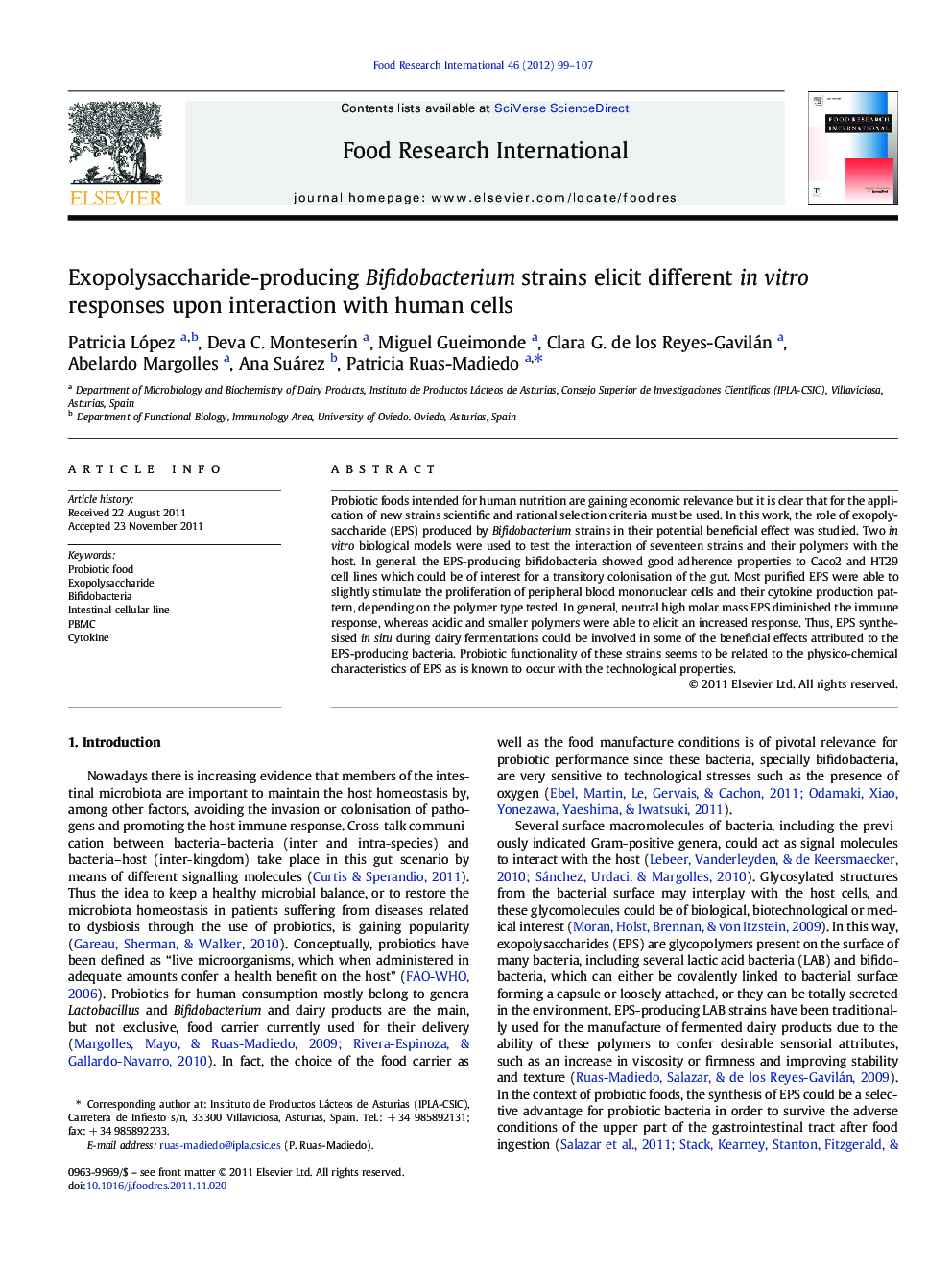| Article ID | Journal | Published Year | Pages | File Type |
|---|---|---|---|---|
| 4561892 | Food Research International | 2012 | 9 Pages |
Probiotic foods intended for human nutrition are gaining economic relevance but it is clear that for the application of new strains scientific and rational selection criteria must be used. In this work, the role of exopolysaccharide (EPS) produced by Bifidobacterium strains in their potential beneficial effect was studied. Two in vitro biological models were used to test the interaction of seventeen strains and their polymers with the host. In general, the EPS-producing bifidobacteria showed good adherence properties to Caco2 and HT29 cell lines which could be of interest for a transitory colonisation of the gut. Most purified EPS were able to slightly stimulate the proliferation of peripheral blood mononuclear cells and their cytokine production pattern, depending on the polymer type tested. In general, neutral high molar mass EPS diminished the immune response, whereas acidic and smaller polymers were able to elicit an increased response. Thus, EPS synthesised in situ during dairy fermentations could be involved in some of the beneficial effects attributed to the EPS-producing bacteria. Probiotic functionality of these strains seems to be related to the physico-chemical characteristics of EPS as is known to occur with the technological properties.
► Exopolysaccharides (EPS) from bifidobacteria interact in vitro with human cells. ► Some EPS-producing bacteria show high adhesion to epithelial intestinal cell lines. ► Bifidobacterial EPS act as effector molecules on peripheral blood mononuclear cells. ► Certain neutral and high molar mass EPS elicit a reduced immune response. ► Physico-chemical characteristics of EPS could determine their activity on human cells.
